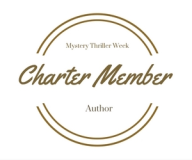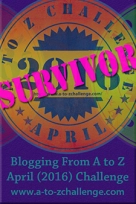Ana Maria Reyes Does NOT Live in a Castle
In the category of like attracts like, I seem to have a lot of friends who are writers, which is somewhat odd given the singularity, the isolated nature of such an occupation. My friend, Hilda Burgos, is the author of Ana Maria Reyes Does NOT Live in a Castle.
Hilda and I have been coworkers for almost three decades, hired around the same time, give or take a year, to work at the same federal agency, we’re like sisters in arms, fighting environmental scofflaws and doing our best to save the air and water of our nation.
We also joined Toastmasters around the same time, and for the same reason: neither one of us were particularly fond of public speaking so if we were going to have to get out there and sell our books we wanted to do it in a coherent fashion, maybe even with a bit of panache.
So while I went the Indie route, self-publishing through Kindle Direct, Hilda found a publisher — and away she went. Ana Maria Reyes Does NOT Live in a Castle is her first book, a YA novel about 13-year old Ana Maria Reyes, a gifted pianist who lives in a crowded apartment in NYC with her stay-at-home mother, lawyer father, and three sisters with a baby on the way. It’s a lovely tale of family and friendship; of what’s important in life (hint: it’s not money); and of working hard to make your dreams come true; for Anna Maria, it’s a scholarship to a prestigious academic school. A sequel is in the works and Hilda reports her publisher is already bugging her for chapters. So let’s start.
You’re a full-time lawyer with a full caseload, and married with a family which means writing probably falls somewhere down the totem pole of responsibilities. How do you juggle writing with deadlines from your publisher and what is it about writing that compels you to give up your free time, nights and weekends, to work on your stories?
I’ve always loved to write, and I first started to write children’s stories in earnest after I graduated from law school. It was a fun hobby to do in my free time. But then the kids came along and free time became scarce, so I put it aside. I picked it up again when my daughter was in college and my son was in high school because I had more time and I decided that I should spend that time on what I really enjoy. I’ve always loved language and reading fiction. Constructing my own stories is a fun puzzle that I’m thrilled to conquer.
You are one of four sisters. How much does Ana Maria’s story mimic your own life?
The specific events in the book are fictional, but Ana María’s circumstances and personality are a lot like mine. My parents came to the United States from the Dominican Republic before I was born, and my family lived in an apartment in Washington Heights, New York City. I was always kind of nerdy and really into school. When I was ten years old, I visited the Dominican Republic for the first time ever, just as eleven-year-old Ana María visits the DR for the first time in the book.
That’s awesome. Do you also play a musical instrument like your character?
Although I haven’t played in a long time, I took piano lessons for many years as a child. (I wasn’t as good a player as Ana María, though!)
How did you go about finding a publisher for AMR? Are you satisfied with the process? Have you ever considered indie-publishing?
While I was writing the book, I found out that Lee & Low Books was having a contest for middle-grade and young adult books written by first-time authors of color. I submitted my book, and it was selected as one of the five finalists. I did not ultimately win the contest, but Lee & Low offered me a contract anyway. The process has worked well for me because I am very deadline-driven, so I don’t know when I would have finished this book if I hadn’t had a contract with deadlines associated with it! My editor was great and helped me bring out the very best in the book, and now the marketing and publicity people have worked with me to promote the book. Since things worked out with Lee & Low, I didn’t consider other publishers, nor indie-publishing. One good thing about traditional publishing is that you have a whole team beside you to help bolster your product. My book sold over 3,000 copies in the first 3 months, and I certainly couldn’t have done that on my own.
Congratulations on that. So what draws you to the middle-grade novel as a form of expression as opposed to some other genre?
I am drawn to middle-grade books because they can be a safe place for children to learn about some more challenging issues in life. I like that they can expose readers to thought-provoking themes while also ending with a hopeful and encouraging message. In this way, middle-grade stories teach children that there are tough circumstances out there, but we can deal with them, and we will emerge stronger and wiser when we’re done reading.
The father in Ana Maria Reyes Does NOT Live in a Castle is a lawyer who works for a non-profit that handles a lot of cases dealing with current social issues. Have you ever considered similar work? What do you think is the most important social issue that our society is grappling with today?
My first job after law school was with a legal aid organization, similar to the one where Ana María’s dad works. It was a tough job, but very rewarding, and I hope that I helped my clients during my time there. One issue that I address in the book is economic inequality because that is a huge problem in our society, which, unfortunately, seems to be getting worse and hurts all of us.
Amen to that. Tell us about your writing process? Do you do outlines or just begin and see where that takes you? What does a perfect writing day look like?
I do a combination of outlining and also just writing and seeing where it takes me. When I have an idea I jot down a few thoughts so they don’t escape me later. Then, when I’m actually writing, the story might take some unexpected twists and turns, and then I have to go in a different direction. Ideally, I would like to have a few days of uninterrupted writing time so I can immerse myself in the world of my story, with the mandatory dog walking breaks to keep my back from cramping up too much.
When you retire, will you devote your time to writing as a second career or do you have other plans?
Yes, I definitely want to write after I retire, and then I hope to never retire from this second career.
I know you are a bit shy by nature. What do you do to prepare for the book signings and other events where you may be on a panel or asked to speak?
Well, as you know, I’ve joined a Toastmasters club, and that has helped me learn that I’m not going to burst into flames when I get in front of a group of people to speak! I find that being prepared is the best way to give myself the confidence to speak at these events. Also, the more I do it the less intimidating it becomes. (I still can’t say I actually enjoy it, though.)
How many books do you think you have in you?
That’s a great question. I do worry sometimes that I’ll run out of book ideas. However, it seems that each day I think of more and more things to write about, and I wish I had more time to work on my books. Hopefully, I’ll just keep writing books until I’m 100.
In the world of sound bytes and short attention spans, do you think there will always be a place for reading and writing or is writing a dying art form?
I certainly hope it isn’t dying. I’ve noticed that graphic novels and books in verse are more popular now, and I think that might be because they are a little faster to read since they have fewer words. (I’m sure they’re very difficult to write, though.) Still, I have gotten a lot of positive feedback about my book, from both children and adults, and I think (hope) there will always be a place for reading and writing in our world.
There are not that many books out there with a Latina protagonist and while there’s no one way to write a great story, the pressure is on because you are among the first. How do you feel about trailblazing that path?
Unfortunately, you are absolutely right that there aren’t many middle-grade novels with Latina protagonists, and the problem with this lack of representation is that many people might look at my book and think that this is THE depiction of ALL people like my main character and her family. While I try to ignore that pressure and just tell myself that this is just one story told from one person’s point of view, I can’t help but feel a responsibility to include honest depictions that do not bolster stereotypes. I wanted to make sure that readers realize that Dominicans, like everyone else, are not all exactly alike. So I created a lot of characters who are very different from one another. (I include a list of characters in the beginning so that my readers won’t be confused by the many people in the book.) Even Ana María and her sisters are quite different from one another because that’s how it is in all families, right?
So true. Sadly, we live in disquieting times where everyone who doesn’t look like us is “other”. How can books like yours help young adults navigate “otherness” and see that we’re just all people?
A lot of people who are from backgrounds that are different from mine and my characters’ have told me that a number of themes in the book really resonated with them, that they saw their own families in my characters, and that they identified with Ana María so much. I think that’s because a lot of the themes in my book are universal since we all have families that we love (and sometimes hate), we have goals that we work hard for, and sometimes things get in our way and we’re disappointed. I hope that, by seeing themselves in characters who might come from a different background, young readers will learn that we really have a lot more in common than not.
And who do you want to play the movie version of AMR?
I’m not familiar with too many young actors, but, should there ever be a movie version of my book (that would be awesome!), I hope that movie would create opportunities for talented young Latinx actors who may not have had many roles available to them in the past.
Any other thoughts or things you may want to add, you’ve got the pen!
First, thank you for taking the time to read my book, and for these great and thoughtful questions. Writing can be a very solitary venture, but one thing I have learned during this journey is that having a writing community is invaluable and that fellow writers—like you—are the nicest people ever!
Thank you, Hilda. It’s been wonderful speaking with you and reading your most enjoyable story. Best of luck with Ana Maria Reyes Does NOT Live in a Castle and I wish you all the best with your future writing endeavors!
pamlazos 8.4.19















What a fun interview! I love hearing how another writer finds a way to bring writing into her life; plus, it’s so cool to see how another writer utilizes elements of her own life to create a new fictional person. Awesome! And I dig her take on MG; kids need a fun, bright place to engage with tougher challenges.
LikeLiked by 1 person
Thanks, Jean. There are many roads to get to the top of the mountain, eh, and it’s good to be able to learn from each other. 😘
LikeLiked by 1 person
I loved your interview with author Hilda Burgos, this is the kind of content I’ve been looking for. Does Hilda Burgos have a blog that readers can follow or where can we follow her on Social Media?
LikeLiked by 1 person
I don’t believe she has a blog or social media page.
LikeLiked by 1 person
Good book for my 13 year-old granddaughters.
LikeLiked by 1 person
Yes, it is, Michele. I read it and it’s delightful. :0)
LikeLiked by 1 person
For obvious reasons I don’t read much YA fiction, but this sounds like a pretty interesting story and one that is a little different than most.
LikeLiked by 2 people
You need a few young’ins around to read to, Ken!😉
LikeLiked by 1 person
I really enjoyed reading this thanks Pam and Hilda and many congratulations on the success of AMR and continued success of further books. Universal themes always have resonance and it’s so necessary that people are exposed to this, that all cultures may have differences but the similarities are just as significant.
LikeLiked by 3 people
Spoken like a true woman of the world, Susan. 🥰
LikeLiked by 2 people
I wish your friend, Hilda, success with her book.
LikeLiked by 3 people
Thanks, Rosaliene. 😘
LikeLiked by 1 person
Thank you!
LikeLiked by 1 person
Thanks, Rosaliene. 🙏
LikeLike
Marvelous interview, Pam! The book sounds charming!
LikeLiked by 3 people
Thanks 🙏 so much, Leah.
LikeLiked by 1 person
How exciting for Hilda – wishing her much success, and this was a great interview, Pam – kudos! Love to both. xoxox
LikeLiked by 2 people
Thanks, Suz. ❤️😂
LikeLike
Thank you!
LikeLiked by 1 person
This is a wonderful interview. I’m looking forward to reading the book. Best of luck to both of you incredible writers.
LikeLiked by 3 people
🥰🙏, Ms. Bartlett.
LikeLike
Thanks, Deane!
LikeLiked by 1 person
I love the title of this YA novel. It’s delightful. I agree that the world would be better off if there were more “honest depictions that do not bolster stereotypes” in novels. That’s an astute observation.
LikeLiked by 3 people
Thanks, Ally. 😘
LikeLiked by 1 person
Thank you, I was afraid the title was a bit too long, but I couldn’t think of anything I liked better! I’m glad you like it!
LikeLiked by 2 people
A lovely interview, Pam and Hilda.
Congratulations on you publishing deal. The story of how it came about is also interesting, and inspirational.
LikeLiked by 2 people
Thanks, Cath. 🙏
LikeLiked by 1 person
Thanks!
LikeLiked by 1 person
good luck with your enterprise
LikeLiked by 2 people
🙏
LikeLiked by 1 person
Thank you.
LikeLiked by 1 person